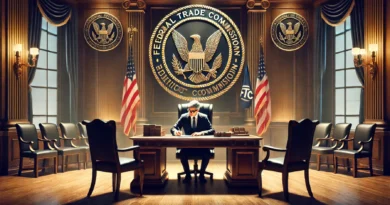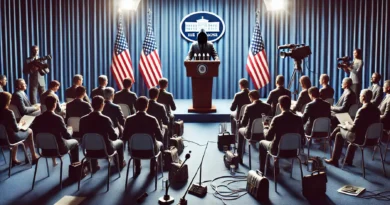Vance Criticizes Trump Admin’s Bombing Plans Against Houthis Amid Bailout Frustrations
In a surprising turn of events, Vance, a notable figure in American politics, has voiced strong criticism over the Trump administration’s plans to bomb the Houthis. During a recent press conference, Vance expressed his discontent in plain language: “I just hate bailing Europe out again.” This statement not only captures the frustration felt by some in the political arena but also brings into focus the ongoing debate over US foreign policy and its far-reaching consequences.
The Houthis, a rebel group based in Yemen, have been at the center of an intense conflict that has drawn international attention. The Trump administration’s strategy to target them has sparked controversy both at home and abroad. Critics argue that such military actions may worsen an already volatile situation in the Middle East and could lead to unintended consequences. Vance’s remarks highlight a deeper issue: the perception that America is being drawn into conflicts that have broader financial and political implications.
Vance, whose background includes years of service in public office, made it clear that his frustration stems not just from the military decision but from what he sees as a recurring pattern of American financial intervention in European matters. “Every time there’s a crisis, it feels like we are the last line of defense, forced to pick up the tab,” he explained. His comment suggests that the administration’s focus on military action in the Middle East is intertwined with economic concerns, particularly those involving Europe.
Many political analysts believe that Vance’s statement is more than just a critique of military strategy—it is a reflection of a growing sentiment among some policymakers who are wary of overextending America’s military and economic commitments. The idea of “bailing Europe out” refers to the financial and logistical support that the United States has often provided to its European allies, especially in times of economic or military crisis. Vance’s blunt remark underscores a sentiment that the US should prioritize its own interests rather than becoming entangled in external conflicts.
The controversy over the bombing plans has led to heated debates on Capitol Hill. Some lawmakers support a robust military response as a way to curb the influence of militant groups in the region, while others echo Vance’s concerns, questioning whether such actions serve America’s long-term interests. Critics of the plan warn that bombings could lead to further destabilization in Yemen, exacerbating the humanitarian crisis that has already affected millions of civilians.
Experts also point out that military interventions often have unpredictable outcomes. History shows that even well-planned operations can spiral out of control, leading to unintended casualties and prolonged conflicts. In this light, Vance’s remarks serve as a cautionary note about the risks of relying too heavily on military solutions to complex geopolitical issues. Instead, many argue that diplomatic efforts and international cooperation might yield better results in the long run.
On the international stage, reactions to the Trump administration’s strategy have been mixed. European leaders, who have at times depended on American support, now face the dilemma of balancing their own security interests with the realities of shifting US policies. Some European officials have expressed concern that the US might once again be forced into a role where it must provide extensive support, even when it seems reluctant to do so. Vance’s comment has resonated with those who feel that American leadership should not be taken for granted.
At the same time, supporters of the military plan assert that decisive action is necessary to counter the threat posed by the Houthis. They argue that without a firm response, extremist groups may gain ground, not only in the Middle East but potentially in other regions as well. For these advocates, the issue is not merely about financial bailouts but about ensuring that the United States remains a dominant force in global security affairs.
As the debate continues, it remains clear that Vance’s candid words have struck a chord with many citizens and politicians alike. His statement forces a re-examination of how military decisions are made and the broader implications they carry for national security and international relations. While the administration defends its strategy as a necessary step to maintain global stability, the criticism highlights the ongoing struggle to balance military might with fiscal responsibility.
The unfolding situation serves as a reminder of the complex interplay between military action and economic policy. With international tensions rising, the need for clear, strategic thinking is more critical than ever. Whether the Trump administration will adjust its plans in response to growing concerns remains to be seen, but one thing is clear: the debate over how best to protect national interests is far from over.
Note: This post was created with the help of AI, and all the data used was collected from reliable websites.




